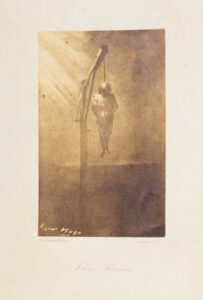 Svante Myrick recently attacked President Trump’s work for religious freedom, as well as our organization’s work on judicial nominations at the American Family Association Action’s Center for Judicial Renewal.
Svante Myrick recently attacked President Trump’s work for religious freedom, as well as our organization’s work on judicial nominations at the American Family Association Action’s Center for Judicial Renewal.
Our standard for evaluating future federal judges is simple: we seek judges “with the best long-term, demonstrable record of commitment to the constitutional role of judges, which is to decide cases according to the original meaning of the Constitution and legislative texts, and to never legislate from the bench.”
When evaluating judges under this standard, we research prospects’ records in a number of key areas, including their worldview. It is this “worldview” research that seems to draw the most opposition from the anti-religious Left.
Some seem bothered that we prefer judges who respect the Constitution and the God of our Declaration of Independence. Moreover, we prefer judges who have a relationship with Jesus because the teachings of Christ, among other things, lead judges to be fair to all persons, religious and non-religious.
Some on the Left seem to believe that our “preference” violates the Constitution. It does not, and it must be noted that there is a major distinction between a “religious preference” and a “religious test.” The Constitution expressly prohibits religious tests but allows religious preferences. The prohibition of a religious test still allows every citizen, whether Christian, non-Christian, or otherwise, to prefer a president, political leaders, and federal judges who share his or her worldview. In fact, the first Chief Justice of the U.S. Supreme Court, John Jay, was himself a Christian and believed that Americans should “prefer Christians for their rulers.”
Our Constitution allows citizens of every religious conviction to vote and participate. However, that does not mean that all religious convictions equally contributed to our American form of government. Justice Joseph Story, who served on the U.S. Supreme Court for 34 years, was a Harvard law professor, and authored the authoritative “Commentaries on the Constitution,” explained the historical fact that “[t]here never has been a period of history, in which the Common Law did not recognize Christianity as lying at its foundation.”
Story also explained the importance of religion in our public life: “[I]t yet remains a problem to be solved in human affairs, whether any free government can be permanent, where the public worship of God, and the support of religion, constitute no part of the policy or duty of the state in any assignable shape.” Finally, he made it clear that Christianity played a formative role in our government. “Probably, at the time of the adoption of the Constitution, and of the Amendment to it now under consideration, the general, if not the universal, sentiment in America was, that Christianity ought to receive encouragement from the State so far as was not incompatible with the private rights of conscience and the freedom of religious worship,” he wrote. “Any attempt to level all religions, and to make it a matter of state policy to hold all in utter indifference, would have created universal disapprobation, if not universal indignation.”
 The United States Supreme Court has gone even further in explaining the unique role Christianity has played in our founding. In the 1892 Church of the Holy Trinity case, the high court documented America’s religious history and concluded that “this is a religious nation,” “[w]e are a Christian people,” and “this is a Christian nation.”
The United States Supreme Court has gone even further in explaining the unique role Christianity has played in our founding. In the 1892 Church of the Holy Trinity case, the high court documented America’s religious history and concluded that “this is a religious nation,” “[w]e are a Christian people,” and “this is a Christian nation.”
However, the Court explained that our nation’s relationship with Christianity still allows liberty of conscience for all citizens: “Christianity, general Christianity, is, and always has been, a part of the common law. … Not Christianity with an established church … but Christianity with liberty of conscience to all men.”
In conclusion, it must be said that the Constitution protects persons of all religious views and allows their participation in public life. But not all religions equally influenced our Constitution and our governmental structure. Christianity holds a unique position in our nation, and for that, we should be thankful, because it is those distinctly Christian principles that provide us with a government and judges who protect those with whom we disagree.
Written by Phillip Jauregui for The Hill ~ May 22, 2025
